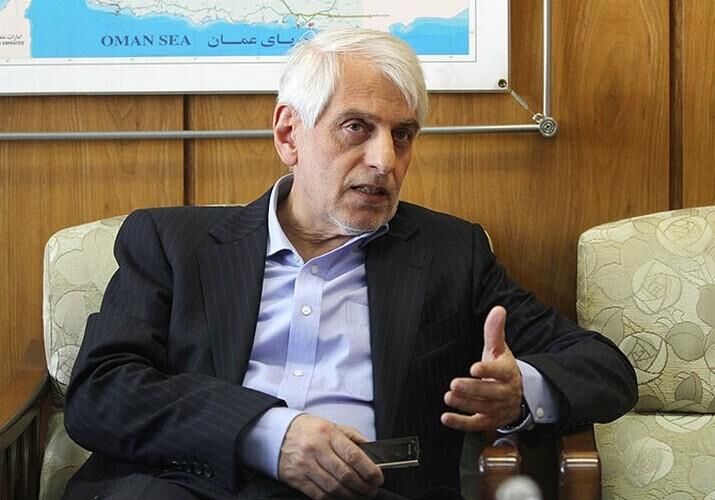The following is the full text of the interview Majedi, also a former top oil official, gave to "Iran Petroleum".
You served as Iran’s ambassador to Germany, one of the major European economies. How do you evaluate the process of signing of oil, gas and petrochemical agreements with the Germans?
I was named ambassador to Germany exactly when Iran and six world powers had begun talks to reach the JCPOA deal. At the time when the talks were under way and after the JCPOA was stuck I tried my best to remind German officials of the advantages of investment in Iran’s oil and gas sector. I was also serving as Iran’s ambassador to Japan where I had told officials about Iranian crude oil reserves. I did the same in Germany and German company Wintershall agreed to invest in Iran’s ecostream, as well as several oil and gas fields. Talks were held with National Iranian Oil Company and National Iranian Gas Company. Although the talks were 95% done, the US withdrawal from the JCPOA halted everything. BASF, a major shareholder in Wintershall, has significant customers in the US and therefore the project came to a halt. BASF is the largest oil ecostream company in Germany. It is cooperating with Russia’s Gazprom in exporting oil and gas from Russia to Europe. As the largest chemical company in Germany, it has also won international reputation and is involved in widespread activity in the US. Given the fact that Wintershall is largely interested in continued cooperation with Iran while it has been forced to end talks due to opposition from its stakeholders, as talks have neared the stage of signing agreement, in case the Americans stop their negative behavior we can quickly implement the agreement with the Germans. I mean in case the Americans return to the JCPOA our two-year talks may bear fruits, in which case our Ministry of Petroleum and ambassador to Germany should adopt a strong economic diplomacy to inform the Germans once more of the advantages of investment in Iran’s oil and gas fields, as well as other sectors.
You mean that should the US choose to return to the JCPOA, Germany can develop oil and gas fields in Iran.
The ground is already paved. The Ministry of Foreign Affairs, along with the Ministry of Petroleum and National Iranian Oil Company, have made extensive efforts for this cooperation to materialize. Therefore, this agreement is largely likely to come to fruition.
The Germans seem to be interested in Iran’s oil and gas projects, don’t they?
That’s true. We had another project with BASF, and talks were held between this company and the Persian Gulf Holding. Minister Zangeneh welcomed it and necessary facilities were planned to be provided. The project was valued at €5 billion. BASF had a 60% and Persian Gulf Holding a 40% share in the project. Iran, Saudi Arabia, Algeria and Qatar were bidding for BASF’s cooperation. BASF experts chose Iran after 6 months of consultation. The CEO of Persian Gulf Holding also visited Germany several times for talks. However, the project was halted due to President Trump’s withdrawal from the JCPOA. The talks were 50% complete and we had reached the phase of financing. In case the agreement had been signed with the Germans, in addition to financial resources, German technology would be also transferred. Therefore, these projects are significant to us. In addition to oil fields, we also held talks on gas fields. The Germans were even ready to finance the Siraf refining project, which was once again halted due to US sanctions.
Therefore, easing of the sanctions can lead to implementation of major projects with German investment in Iran?
In fact we had three major projects with Germany, which were suspended due to the withdrawal of US from the JCPOA. At the Iranian embassy in Germany, we seriously followed up on the talks. In another case, the ground was prepared for cooperation between an Iranian electricity company and Germany’s Siemens. This one is also suspended. The investment envisaged for the aforesaid projects totals €15 billion, which is significant. As I have already mentioned, our talks with the German side made very good progress, but they have been halted due to the US sanctions. In case the US sanctions are lifted, the Petroleum Ministry, the Persian Gulf Petrochemical Industries Company and the Iranian embassy in Germany would have to adopt a strong economic diplomacy to convince German companies about the advantages of investment in Iran. German companies were also close to cooperating with Petropars.
You were serving as the deputy minister of petroleum for international affairs. What else can you tell us about Iran’s energy advantages?
We have to seriously follow up on the issue of gas exports to Europe. I believe that there is great potential for gas supply to the green continent. The Europeans, particularly the Germans, depend on gas, but it is monopolized by Russia now. As someone who believes in economic diplomacy under any circumstances, I reiterate that gas delivery to Europe would be a successful project in the future.
What do you think of the future prospect of Iran’s oil and gas market in the world?
Our main market lies in East Asian nations like China, Japan, South Korea and India. However, we can also win a toehold in Europe. If we centralize our work we may consider exporting gas to Europe.
Interview by Ameneh Mousavi


Your Comment